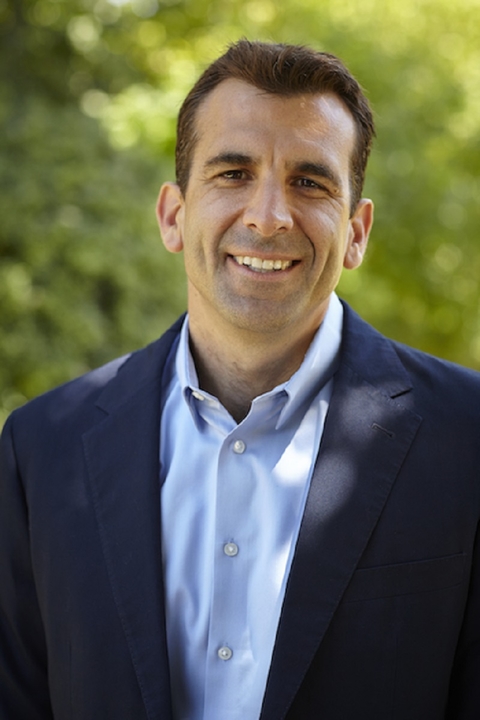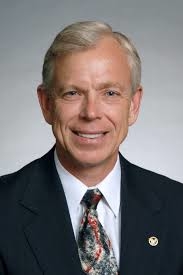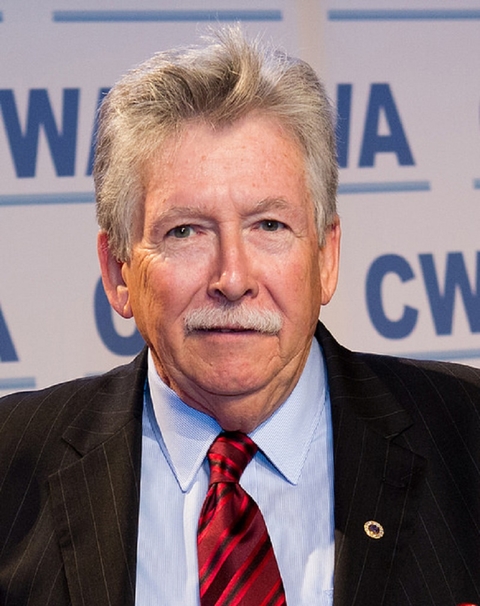San Jose Mayor Sam Liccardo has left the FCC’s Broadband Development Advisory Committee (BDAC), charging that the organization is giving large service providers like AT&T and Verizon free rein to install network facilities at the expense of communities' best interests.

"It has become abundantly clear that despite the good intentions of several participants, the industry-heavy makeup of BDAC will simply relegate the body to being a vehicle for advancing the interests of the telecommunications industry over those of the public,” said Liccardo in his resignation letter to FCC Chairman Ajit Pai.
Liccardo said in an Axios report that the BDAC’s recommendations would “steamroll cities” in favor of giving service providers easier access to infrastructure such as utility poles and public rights of way. He cited a draft model law that would give states broader power to streamline the permitting process to install small cells regardless of a city’s interest.
What’s at stake here is how to strike a balance between service providers’ desire to build and expand broadband services while giving local communities a say in the process. On one hand, service provider members of the committee want rules that streamline how they can get access to utility poles and other rights of way through an easier permitting approval process and reducing the cost of fees. However, community leaders like Liccardo and others want to make sure that local officials can set rules that would benefit their cities and towns to close the gap between the so-called broadband haves and broadband have-nots.
Providers want easier access
Service providers like AT&T and Verizon, which have set out large wireline and wireless network expansion initiatives, have made it clear that they want easier access to city infrastructure. In a December FCC filing, AT&T said that broadband expansions will slow if local municipalities don’t lower their rates and streamline the permitting process. The service provider suggested that pole attachment rates should be set at $50 and any higher rates would mean "lost investment and/or higher services costs [that] would harm consumers and materially inhibit or limit a service provider's ability to provide wireless services at the quantity and quality customers now demand."
Verizon likewise has been working with city leaders where it has plans to build out fiber and wireless infrastructure to secure necessary rights of way and streamlined permitting processes. In 2016, the service provider struck a landmark $300 million deal with the city of Boston. Verizon is replacing its aging copper network with fiber in Dorchester, West Roxbury and the Dudley Square neighborhood. Other deployments include Hyde Park, Mattapan, and other areas of Roxbury and Jamaica Plain. As part of that agreement, city councilors told Verizon that Boston would ease regulatory restrictions, including the permitting process to build out service and gaining access to existing rights of way.
Besides Boston, Verizon has garnered agreements with other cities like Sacramento to get more streamlined infrastructure access. In June, the Sacramento City Council approved an array of projects with Verizon, including support for Sacramento’s Vision Zero initiative, more than a dozen digital kiosks and new infrastructure for 5G.
Verizon continues to work with city leaders in the cities where it has plans to build out fiber and densifying its 4G and future 5G wireless networks to secure necessary rights of way and streamlined permitting processes. Lowell McAdam, chairman and CEO of Verizon, told investors during his company's fourth-quarter earnings call that it is confident it can replicate a similar process in other cities.

“The meetings that we’re having with the cities and what access they will give us to street furniture and conduit factor into the equation,” McAdam said. “It’s a bit fluid at this point.”
Unions cite danger with OTMR proposal
The controversy over the BDAC’s proposals is not relegated to Mayor Liccardo and service providers alone. BDAC’s recommendation for one-touch-make-ready (OTMR) rules is once again drawing fire from the Communications Workers of America (CWA) union.
OTMR, a concept initially championed by Google Fiber, allows new entrants to move and install their own wiring on poles instead of waiting for AT&T and other service providers to conduct this work.
At issue for the union is a proposal that mandates the use of contractors to move telco equipment to make room for new attachers' equipment on an existing utility pole. CWA said that this make-ready work is done by existing workers at AT&T, Verizon, Frontier, and other providers.

“The BDAC recommendation threatens public safety,” said Chris Shelton, president of the CWA, in a statement. “Mandating contractors rather than trained career employees to do this work can lead to dangerous conditions for the public, such as ungrounded wires and heavy terminals hanging without adequate support.”
Additionally, the union echoed its sentiment that handing off make-ready work to outside contractors compromises existing labor agreements.
“The BDAC recommendation also threatens the good middle-class jobs of thousands of workers across the country, and violates contracts negotiated by our union with our members' employers,” Shelton said.
CWA has been an outspoken critic of OTMR. The union told the regulator in June that it should not accept OTMR proposals that could create unsafe environments and violate existing labor contracts.
Interestingly, the two largest telcos, AT&T and Verizon, remain divided on the OTMR topic. AT&T voted against the recommendation, citing CWA union contracts. Verizon supported the recommendation and said union contracts should not serve as a barrier to accelerating the make-ready process.
